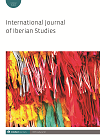
Full text loading...
 , Carla Baptista2
, Carla Baptista2
This article inquiries about the use of Twitter by the two radical right-wing populist Iberian parties, the Spanish VOX and the Portuguese Chega, during election campaigning. Using quantitative and qualitative methodologies, it analyses the tweets posted on their official accounts during the campaign running up to the last general elections held in Spain and Portugal. The results indicate diverging uses of Twitter and differences in their thematic political agendas. VOX chiefly exploits people’s feelings of national unity in the face of Spain’s peripheral nationalism and stirs up fear of illegal immigration. Chega cultivates a sense of insecurity to legitimize its punitive legalistic proposals, such as applying the life sentence and the chemical castration of paedophiles. VOX more frequently employs colloquial and aggressive language. These differences reflect the asymmetric positions of power occupied by the two parties but do not jeopardize the development of an Iberian-inspired radical-right populism.
ResumenEste artículo analiza la utilización de Twitter por los dos partidos ibéricos de derecha radical: VOX (España) y Chega (Portugal) en periodo de campaña electoral. La investigación, desde una metodología cuantitativa y cualitativa, incluye los tuits publicados en sus perfiles oficiales durante las últimas elecciones legislativas de Portugal y España. Los resultados indican usos muy diferenciados de Twitter e divergencias con respecto a la temática de sus agendas políticas. VOX explota los sentimientos de unidad nacional frente al nacionalismo periférico y agita el miedo a la inmigración ilegal. Chega construye la sensación de inseguridad para legitimar sus propuestas legalistas punitivas, como la aplicación de la cadena perpetua y la castración química de pedófilos. El lenguaje coloquial y agresivo está más presente en la comunicación de VOX. Estas diferencias traducen la asimetría de las posiciones con respecto al poder ocupado por los dos partidos y no comprometen el proyecto de un populismo de derecha radical de inspiración ibérica.

Article metrics loading...

Full text loading...
References


Data & Media loading...

Publication Date:
https://doi.org/10.1386/ijis_00072_1 Published content will be available immediately after check-out or when it is released in case of a pre-order. Please make sure to be logged in to see all available purchase options.